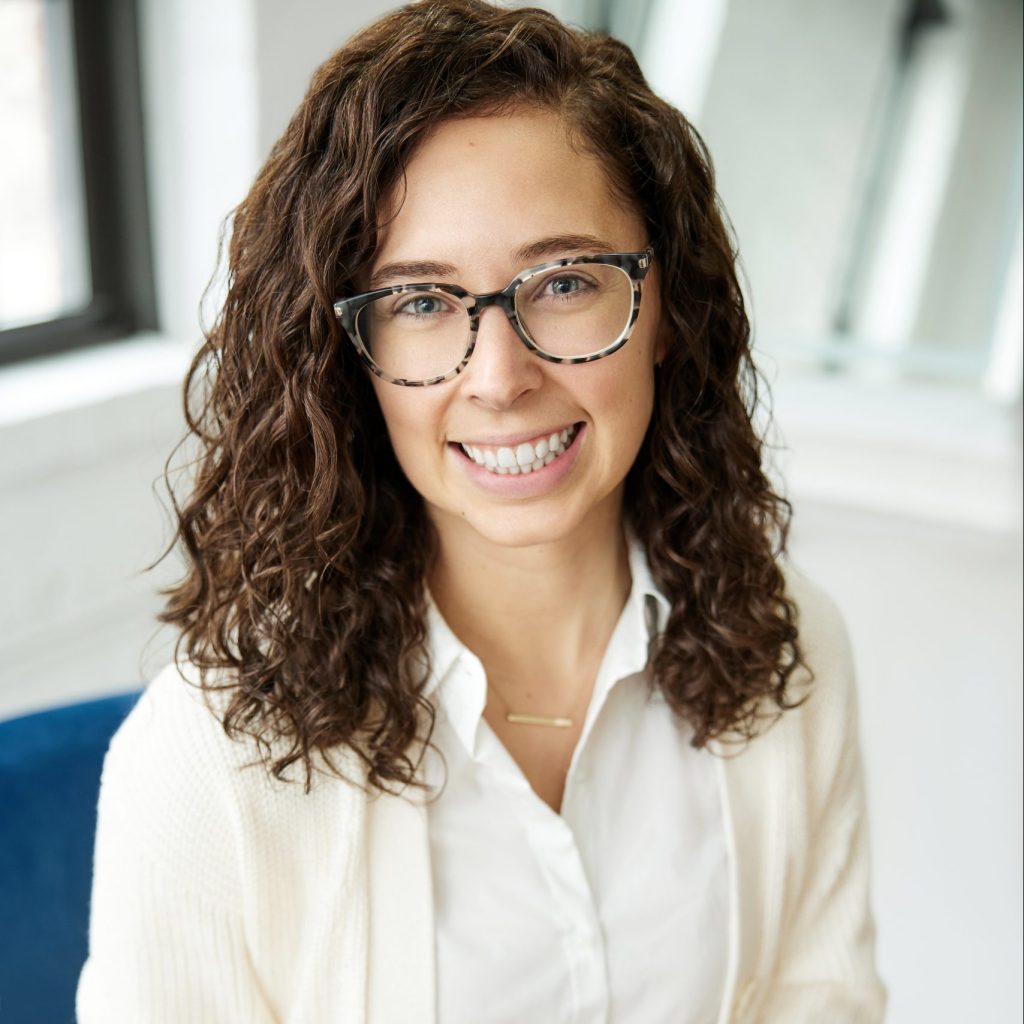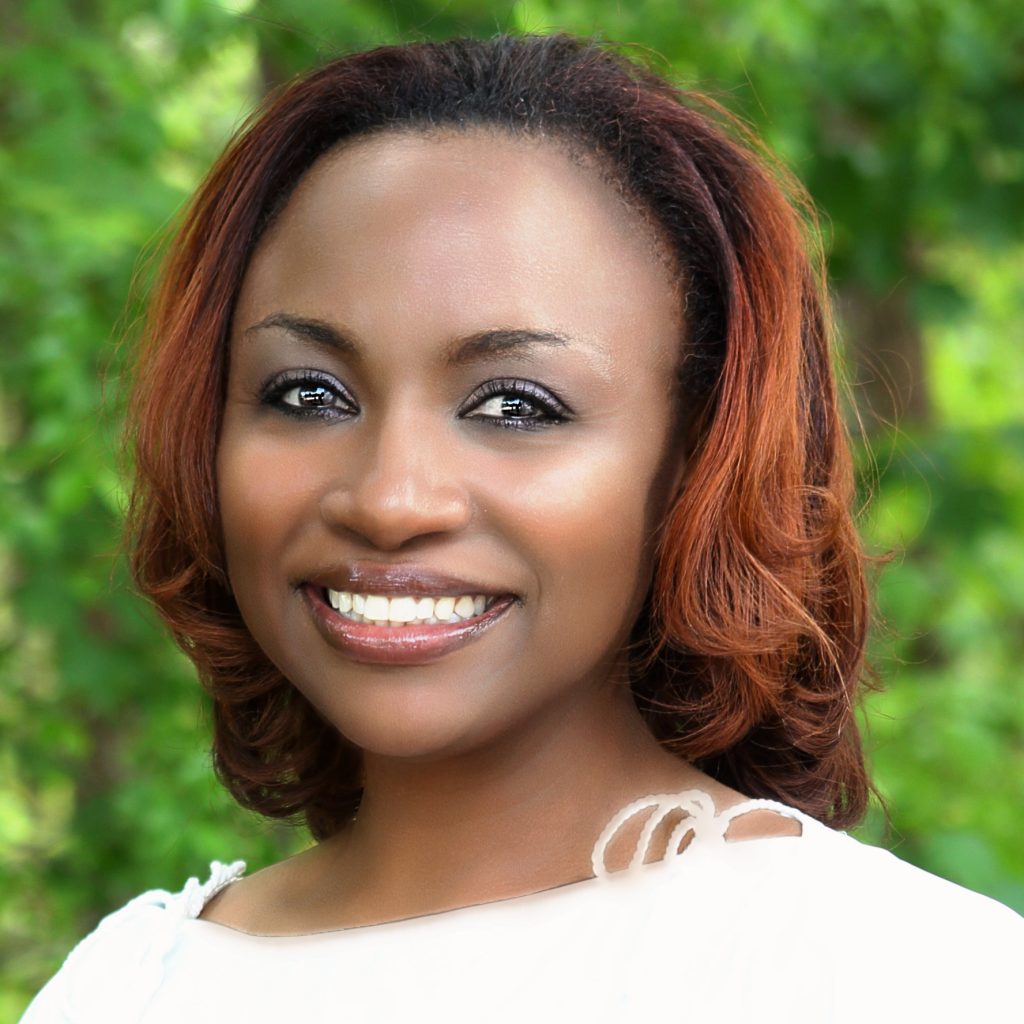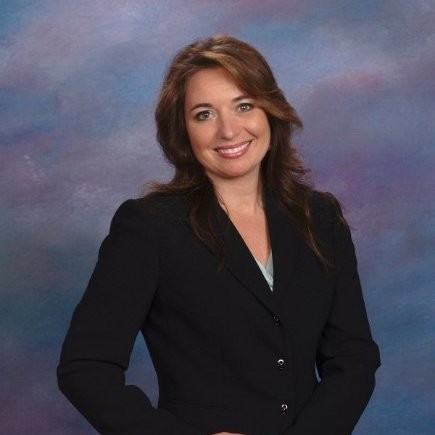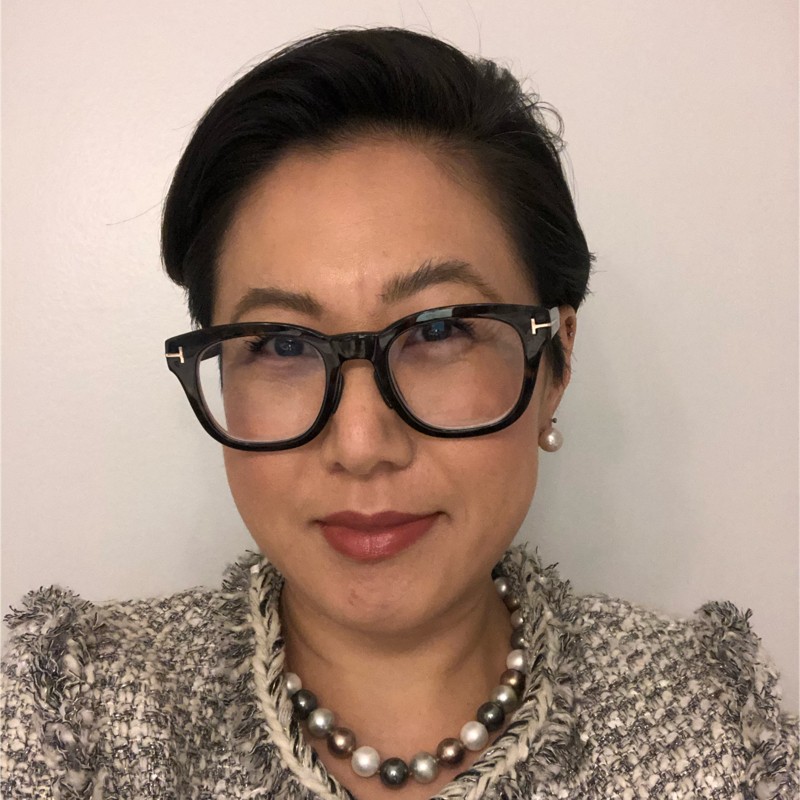
Celebrating Women with Initiative: Empower, Encourage, and Educate – Part 1
The conversation around empowering women in leadership has gained significant traction recently. Yet, while progress has been made, women still have significant barriers to overcome, mainly when leveling the playing field for promotions.
Mental health in the workplace is also an important issue that must be addressed, as the pressure to succeed can take a significant toll on employees. By focusing on these areas, we can create a more inclusive and supportive work environment for women and other underrepresented groups, ultimately leading to greater success for individuals and the organizations they work for.
Join Lori Miller, Carmen Jackson, and Kelly Bengtson as they discuss empowering women in leadership, leveling the playing field when it comes to promotions, and mental health in the workplace.

Lori Miller
President at Swoon
About Lori
Throughout her time at Swoon, Lori worked her way through the ranks and initiated the first global expansion into Canada, developed Swoon’s most comprehensive sales strategy supporting Fortune 500 firms, and helped Swoon drive revenue growth by 65% in 2021 and 53% in 2022. In 2023, she was promoted from the Executive Vice President of Sales to the President of Swoon to take the company to even greater heights.
Gina: What does empowerment mean to you?
Lori: Empowerment means to authorize or to give power. But I look at it a little differently. It is more of a process of becoming stronger, more confident, and bold with what you are doing and feeling. It creates more of an owning of the decisions that shape you as a person. It is more than just professional. It is what gives you meaning. What are you passionate about, and what is driving you? Feeling confident, powerful, and capable are all essential pieces to growing and learning as a person. So again, it is more of a process than a one-time thing you achieve that you check off a box and carry with you. You are much more likely to be successful at something if you believe you can do it, and that is where a lot of the empowerment sticks with me. I will always remember my first time running the Chicago half marathon. I saw a sign that someone was holding during it that always stuck with me and said something like, “You can achieve what your mind believes.” That rings true for me with empowerment because doubt and insecurity tend to stunt your process of learning and growing. When you can believe in yourself, you can take control. You can make the decisions that you believe in.
Gina: Can you tell us a little about the mentors that have empowered you and maybe how you empower others?
Lori: I struggle with imposter syndrome and have for quite a while now. The best mentors are very supportive, but what they have done is that they focused on a larger goal of empowering me to feel confident in being myself and being independent. Usually, we tend to feel safer in a group setting, alongside peers, but being positive in your independence to decide, test things, cope, and having the space to do that with the people who allow you to go through those motions is really helpful.
I think someone who builds a real relationship with you as a mentor/mentee is the ideal situation because, in those situations, my mentors have been thoughtful about avoiding what they think I want to hear or what I want them to say to me in a situation. Instead, they work with me through what I need to hear, think about, and reflect on. That ties into how you pay it forward if you are a mentor. Well, the best thing you must remember is to constantly be open to learning as a mentor. You cannot just reach a glass ceiling and be done with it. You need to continue to ask a lot of questions when you are working with or mentoring someone. Most of the time, you may not even realize you are mentoring someone, right?
Another thing you can do is open up your network to them. Introducing others to people you find inspiring and helpful helps build a lot of character around people willing to accept advice, be open to new things, experience diversity of thought, and have a lot of gratitude because you need to enjoy the moment. To be the best mentor and to accept a mentor’s advice, you want to always focus on doing the right thing and doing the best with what is in front of you. Allowing people to take the driver’s seat has helped and empowered me to work through some of my confidence. It has helped me build control over topics that I want to talk through and challenges that I want to address and feel confident while being able to set the tone of all that as well.

Carmen Jackson
Manager of Quality Engineering at LexisNexis Risk Solutions
About Carmen:
Carmen has 29 years of IT experience, serving the last 16+ at Risk, moving into leadership in 2015. She is the co-President of Risk’s Women in Technology ERG, and her greatest superpower is empowering and encouraging others to realize the best within themselves.
Gina: How does your intersectional identity as a woman influenced your outlook on the world?
Carmen: My outlook on the world was impacted by my core values and not necessarily by my intersectional identity. I do not consciously think of viewing situations as a woman of color. But, as I reflect on this, to some, that might seem a little naïve not to walk in the skin that I am in. But there were experiences where my defense mechanism was to close off certain emotions, and numbness became my security blanket. So it was a lot easier for me to navigate life without adding that layer of intersectional identity to the mix. As I got older and started to understand where my passions were and what my purpose was, I had to let go of that security blanket. With that, along with the whole flood of emotions that have been buried for so long, came the revelation of who God designed me to be. I had to step in and own/accept that being a woman of color was part of my purpose. So, my experiences, the good and the bad, the joyful and sad, all contributed to who I am and how I view the world.
A perfect example is that I had become numb to the unconscious biases of other people and the hate that I saw in the world. I had this moment where I started to connect to the world on a deeper level because I was connecting with the hidden parts of myself. So, I must admit, for the first time in my life, I can recall. We all know about George Floyd. When I heard about that and saw the video, I sat on my couch, and my eyes burned. I realized that was the impact of my intersectional identity on the world. I started to care much more profound because I accepted everything I had gone through and learned as a woman of color. How can I use this to be of service when I look at the world and its situations and issues?
Gina: For every 100 men promoted to a manager position, 86 women are promoted (McKinsey). In your opinion, how can we change or provide some support to fix that and help to even the playing field?
Carmen: This is interesting because, as we look back, human culture began with women having fewer rights than men and having a designated play and purpose in society, which did not include us sitting at the table next to men. We live in a culture where it is a man’s right to sit at the head of the table versus us having to prove that we deserve that seat. Even in my career, I was on a fast track as I moved to higher levels as an individual contributor. Still, as I began to aspire for leadership roles, I was questioned about my readiness. Even though I had consistently received exceptional reviews in the past, it goes back to not associating that with my identity, but looking at my values, that response did not feel quite right versus maybe my identity as a woman of color may be impacting or having something to do with my career not advancing or stalling at a certain point. We need support that will eventually lead to a change of behavior, a shift in mindset, and things like sponsorship or a more inclusive recruitment process. I think it is important to have effective accountability for diversity.
Lori: Something that is sticking with me is the readiness to accept when opportunities come your way and the feeling that you are excited and empowered to say yes, to step into that role. I think that does tie back into what we are talking about, empower, encourage, and educate, and how you can work to build that into women early on as they start their careers so that when those opportunities come, they do not let fear and doubt take over to say, I am not ready, you should go to someone else. That was a great takeaway.

Kelly Bengtson
Vice President, Audit & Compliance Officer at Blue Cross and Blue Shield of Minnesota
About Kelly
Kelly provides strategic direction and overall management for Blue Cross’ internal audit department, enterprise risk management program, compliance, and special investigations unit. In this role, she is responsible for all compliance and audit activity including the execution of the annual risk-based audit plan, compliance with Annual Financial Reporting Model Regulation (MAR), ensuring corporate-wide adherence to all applicable laws, regulations and government health care program requirements, promoting an ethical work culture and facilitating the enterprise risk management framework.
Gina: How do you consider and care for your own mental health and the impacts of that in the workforce?
Kelly: Being in health insurance, mental health is our top priority right now. Specifically, to your question, my mental and emotional health directly impacts how I show up as a leader, wife, mother, friend, etc. It is something that I have also personally prioritized, we all call the time that we take away from work PTO, but I genuinely believe in mental health days as well. That is something that I encourage my team to take as needed because it is for the betterment of the entire team. For the work aspect, it is hard to focus and do your best work if your mental or emotional health is not the best. I also encourage people to take physical breaks during the day. With the pandemic and everyone sitting in front of the screen, that can weigh on your mental and emotional health.
Gina: What experiences in your own life inform your understanding of the importance of mental health?
Kelly: It goes back to 2017. There has been a lot of negative coverage around behavioral health services or a lack of services provided by health insurance companies to our members. In addition, mental health parity has become a high-profile matter for our regulators, the Biden administration, and advocacy groups, and then adding the pandemic to mental health. The need for that has increased significantly. As a society, we have evolved positively not to have that stigma when talking about mental health, but progress is still being made. Mental health cannot take a back seat to physical health. They are both equally essential, and I am confident that mental health is more important. Many times, we see when our mental or emotional health is not in a good place, we experience related physical ailments. So, I have a great opportunity because I just took on a new team a year ago around mental health parity and compliance, and we have a lot of great work to do. We have a lot of challenges too. But we have an excellent opportunity to increase that access to mental health services and reduce the health equity gaps that we see again that was also highlighted during the pandemic. These are critical to address and take action on.

Yoon Ettinger
Associate General Counsel at Southern Company Gas
About Yoon
Yoon J. Ettinger serves as Associate General Counsel for Southern Company Gas. She leads a 22-member team responsible for labor and employee relations, claims and leave management, civil litigation, and regulatory affairs. In this role, Yoon collaborates closely with operational clients and internal stakeholders to achieve business objectives and mitigate legal risks across operations in Georgia, Illinois, Tennessee, and Virginia. She also serves on multiple non-profit boards and is an active advocate for diversity, equity and inclusion.
Gina: What kind of workplace decisions can be affected by unconscious biases, and how can we reduce those?
Yoon: Every decision inside and outside of work is affected by unconscious bias. I want to start with a story a friend shared with me. She was living in Virginia and interviewing for a job in Atlanta. She flew to Atlanta, had a great interview with her potential supervisors, and they decided to take her out to lunch, which was a great idea, especially since she was coming from out of town and did not know where to eat. They took her to their favorite burger restaurant, and I have been there. It is delicious, but she is a vegetarian. She was a good sport, and they ultimately laughed about it and offered her the job she took. This is an excellent example of unconscious bias. You assume that everyone eats meat. We hear a lot about unconscious bias affecting hiring, promotions, and raises, but it affects everyone every day, inside and outside of work. So, what can we do to reduce these biases? I have heard some people ask why we should even bother with unconscious bias because we are unaware of it. What is the point of trying to talk about it or address it? That is the challenge. We are all walking around with these biases ingrained into who we are, our view of the world that we do not even realize. I think a David Foster Wallace quote sums this up well. These two young fish swim along, and they meet an older fish swimming the other way, who nods at them and says, morning boys, how is the water? And the two young fish swim on for a bit, and then eventually, one of them looks at the other and goes what the hell is water? That is unconscious bias. We are swimming in water that we are not even aware that it is there. What an organization and DE&I does is educate their employees about unconscious bias, which exists in all of us. We all have blind spots, but you have to educate yourself on common blind spots and figure out what your blind spots are.
An example could be a woman who speaks too loudly is aggressive. Another example could be a more introspective woman is not assertive enough to be a leader. So, raising and educating people about the fact that these exist, some of the common ones, and how they can affect your decision-making is a great way to teach about unconscious biases and reduce them. Another important thing an organization can do is give people tools on how to reach or not react when confronted with an unconscious bias. Understandably, we will be upset because we did not even realize we were holding these ideas. For example, I am an Asian woman. I do not know what it is like to be an African American, Hispanic, or White woman, but I do want to support all women or all people, but I know at some point, I might offend someone. That is just the inevitable. We are all going to offend someone at some point in our lives. So, the question is, how will I react when someone tells me that I hurt them somehow? I can be defensive and make accusations back, or I can respond with empathy and, wisdom, self-reflection. I think those are some ways that organizations can teach their employees to learn, to recognize their own unconscious biases, and know how to deal with them and give people space to have that self-reflection so that the next time, they can catch themselves earlier and we can make some progress together.
Gina: How do you think unconscious bias affects inclusion?
Yoon: It has a huge impact on inclusion. The way I like to think about inclusion is that you cannot just invite someone to the dance. That is not necessarily inclusive. You have to include them in the planning of the dance. Speaking from a personal experience as a lawyer for 16 years, I have been in many conference rooms where I have been the only woman. As Carmen said in her portion about intersectionality, I was the only Asian American and person under 50 in the room. There have been times when I have been asked to be the note-taker. Maybe because I was a woman, the youngest, or the new person at the company, or perhaps they thought I just had the least amount to contribute. I do not know. But, there have also been times when I have walked into the conference room with those three and have been asked to participate actively, and my opinions have been actively solicited. Those are the rooms that I want to create and be in. Returning to the message of empowerment, we all can empower others, ourselves, to make the type of inclusion we want. We may not be in charge of the entire company, but in that room, and especially in that meeting, you can create those inclusive spaces if you can lead it. So, even if your organization struggles with DE&I or bias, you can always lead by example and be inclusive in your meetings. There have been times when I have felt unsafe speaking up. That speaks to the idea that I am like, ” Oh, I should have just said that. Do not censor yourself, be smart about it because spaces are unsafe, and you do not necessarily want to put yourself out there, but please speak up. If you feel there is space to speak up and propose processes to make the room a little more inclusive, you could suggest that you rotate the note-taking responsibility. That way, we take turns. So we all have the power to bring inclusivity into our daily lives. We all can do some self-reflection and introspection to figure out what our own unconscious biases are, and we can change the room and the tone of the room one conversation at a time.

